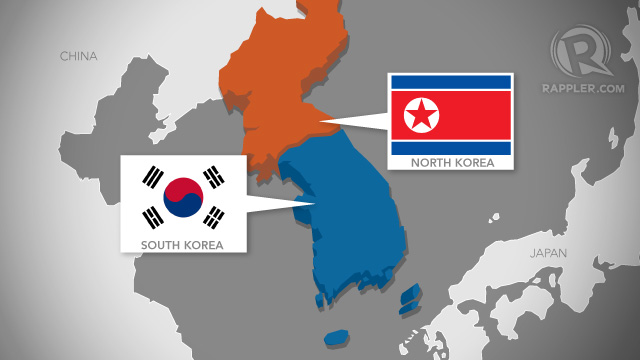For those with even a cursory interest in global affairs, the story of the Korean Peninsula is a familiar yet endlessly complex narrative. It's a tale that spans centuries, marked by a shared heritage, a brutal occupation, a war that has never officially ended, and a divergence so pronounced that it has become one of the most potent symbols of ideological divide in the modern world.
The roots of this division trace back much further than the mid-20th century when the Korean War cemented the separation of North and South Korea. For more than five centuries, these two nations existed as one on the peninsula, being ruled as a dynasty called the Choson. This era was characterized by a relatively homogenous cultural and linguistic identity, which survived various upheavals and changes in leadership.
Then, in 1910, a significant shift occurred. Imperial Japan, in its quest for expansion, annexed the peninsula and ruled it as a colony for 35 years. This period was marked by attempts at cultural assimilation and economic exploitation. The Korean language and customs were suppressed as Japan sought to impose its own culture and identity on the Korean people. However, the Korean spirit of resistance remained strong, keeping the embers of national identity alive through these dark times.
The end of Japanese occupation came abruptly in 1945 when Japan surrendered during World War II. The Korean peninsula was split into two separate zones. The US controlled the Southern region, and the Soviets controlled the Northern regions: thus, North and South Korea were born.

In the immediate aftermath, the division was intended to be temporary, a mere geopolitical convenience to facilitate the surrender of Japanese forces. However, as the Cold War's grip tightened around the globe, what was provisional became permanent. The establishment of two separate governments on the peninsula, each backed by opposing international forces, made reunification a distant dream.
The creation of the Democratic People's Republic of Korea in the North and the Republic of Korea in the South set the stage for decades of tension and conflict. The north's attempt to unify the whole peninsula under communist rule in 1950 sparked the Korean War. The conflict ravaged the peninsula, leaving a trail of destruction and setting the scene for a protracted geopolitical standoff.
Technically speaking, the two nations are still at war, as the Korean War ended with an armistice rather than a peace treaty. While actual combat and skirmishes are rare nowadays, the tension is a palpable undercurrent in the region's politics and has global ramifications.
But beyond the military and political narrative lies a tale of two cultures that, while stemming from the same root, have evolved in vastly different ways. After five centuries as one nation, one would assume that their cultures would remain similar. However, the separation of over 70 years has resulted in some unusual developments.
Surprisingly, a key change is around language. The language has diverged so much that 45% of the defectors from North Korea have problems understanding the Korean spoken in South Korea. In fact, 1% have admitted they do not understand it at all. Language, often a bedrock of national identity, has become a barrier in itself, reflecting the deep chasm that has developed between the two societies.
In North Korea, the culture has taken a unique trajectory. The way of life is layered upon the ideal of self-reliance (Juche), and the propaganda machine works tirelessly to maintain the image of their leader as a deity-like figure. However, when defectors from the North are questioned about their reasons for fleeing, it is not the politics or the cult of personality that they cite as their primary motivator. Instead, it is the economic hardship – the famine, the poverty, and the lack of opportunity – that drives them to undertake dangerous journeys in search of a better life.
What's more telling is that a majority of those who manage to defect still harbor a profound sense of nostalgia and longing for their homeland. This emotional connection persists despite the harsh realities they faced in their original home.
Amidst the surveillance and the oppressive regime in the North, an interesting cultural phenomenon has emerged. South Korean dramas have found an eager audience in the North, with people willing to risk severe punishment to watch them. This suggests a yearning for connection, an implicit acknowledgment of a shared identity that persists even after decades of separation. It is a testament to the enduring nature of cultural bonds, which seem to transcend even the most rigid of political divides.
The contrasting experiences of life in North and South Korea illuminate the human capacity to adapt and the ways in which political systems can shape culture. In the South, a thriving democracy has fostered a culture of innovation and progress. South Korea's economic miracle has turned it into a global powerhouse, home to some of the world's leading technology companies. Its cultural exports, from K-pop to cinema, have garnered international acclaim and fostered a global community of fans.
The dichotomy of the Korean Peninsula serves as a microcosm for the broader ideological battles that have shaped much of world history over the last century. It also serves as a poignant reminder of the arbitrary nature of borders and the profound impact that political ideologies can have on the daily lives of people.
Looking towards the future, the dream of reunification remains a complex and contentious issue. For some, it is a heartfelt aspiration; for others, a strategic nightmare. The path to bringing together the two Koreas is fraught with innumerable political, economic, and social challenges. Yet, the shared history and culture serve as a reminder of the potential for reconciliation, no matter how distant it may seem.
As the world watches the Korean Peninsula with a mix of apprehension and hope, the stories of the people who cross the border – in either direction – continue to add personal dimensions to a political situation that often seems abstract. These stories remind us that, at the heart of international relations, are individuals whose lives are defined by the contours of history and the decisions of the powerful.
The saga of North and South Korea is more than a geopolitical case study; it is a human drama that continues to unfold. The differences in language and lifestyle, the cultural exchanges through forbidden dramas, and the shared longing for peace are threads of a narrative that is still being woven. As the world moves forward, the eyes remain on the Korean Peninsula, a symbol of division and the enduring hope for a future where a shared history can once again mean a united people.




